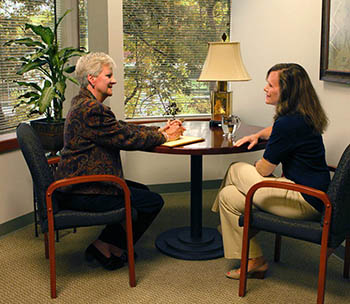Collaborative Divorce
The collaborative law process was developed in the late 1980’s as part of a growing recognition that the traditional adversarial litigation model of divorce did not adequately serve the needs of families. Collaborative divorce law is currently practiced in virtually every jurisdiction in the United States and in many foreign countries. It has been recognized by the American Bar Association and has been specifically authorized by a North Carolina statute and the North Carolina State Bar.
To engage in the collaborative divorce model, you and your spouse agree not to resort to litigation while the collaborative process is ongoing. Each of you will select a family law attorney with whom you feel comfortable, and you will have the support, guidance and protection of your own attorney throughout the process. These attorneys are specially trained in the collaborative divorce process.
The collaborative process is uniquely suited to address your specific circumstances by offering the services of other professionals who are also trained in the collaborative process. If you have minor children, psychologists who serve as child specialists and co-parenting advisors can join the team. When complex financial issues are involved, or when one or both of you desire to have in-depth assistance with projecting your financial future, a financial specialist can participate. All such consultants are hired jointly by both you and your spouse.
The collaborative method is based on the principle of information sharing and open communication. Financial information and any special needs are assessed as part of the information gathering process. The spouses, their attorneys, and other professional advisors then meet in a series of conferences structured to facilitate problem-solving in a respectful and open environment.
When the basic terms of an agreement are reached, a binding settlement agreement is prepared and signed. After you and your spouse have had separate physical addresses for a year, one of you may file for divorce. I will be happy to assist you in the process of obtaining an uncontested divorce at that time, which is usually the only interaction with the judicial system.


 Like Us on Facebook
Like Us on Facebook Connect on LinkedIn
Connect on LinkedIn